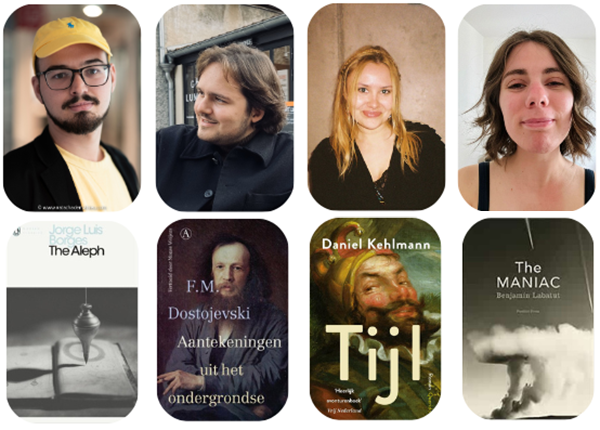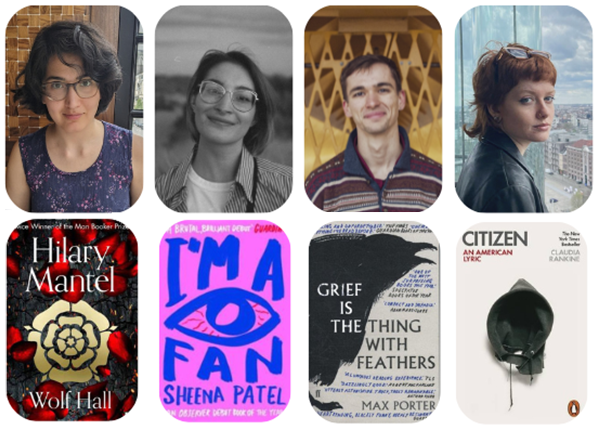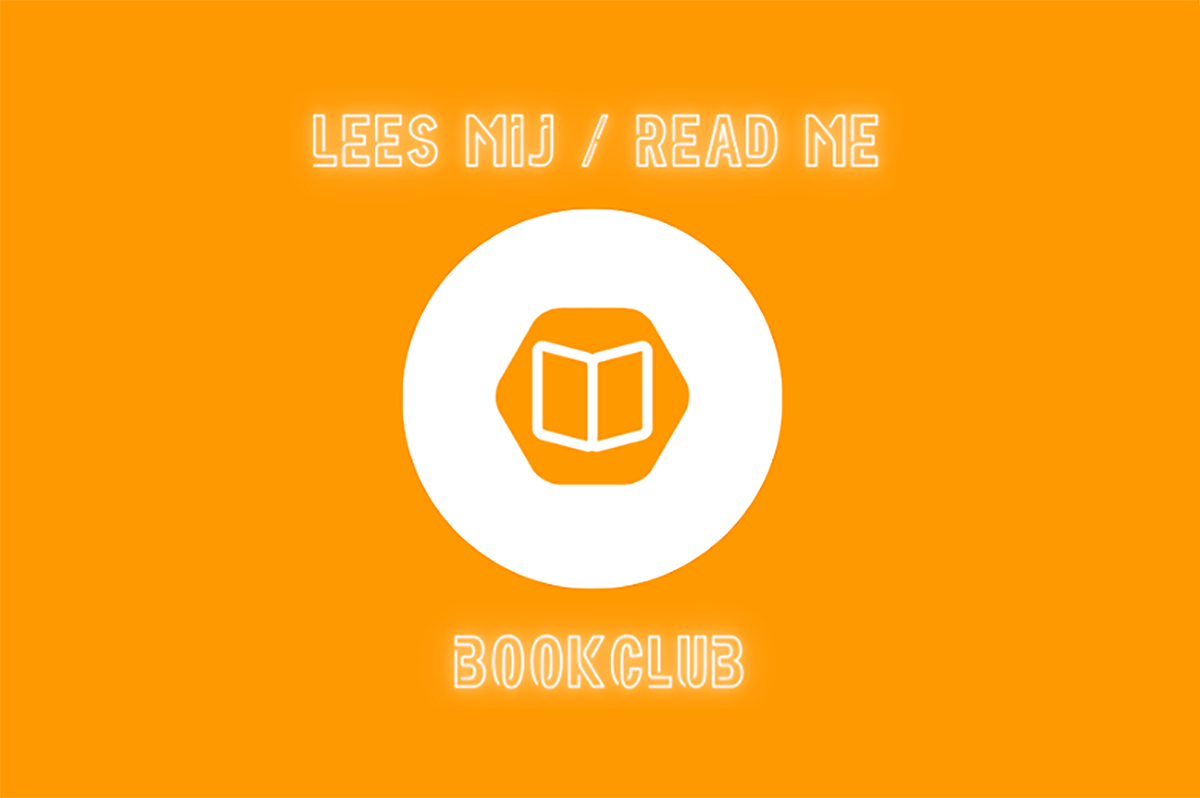If a book could talk it would say “Read me,” but it cannot do so without a mouth. That is why passionate researchers and professional bookworms from the University of Antwerp have decided to lend their voice to a book that they believe wants to be read. The book club LeesMij/ReadMe is a collaboration between doctoral students and De Groene Waterman bookstore, starting again in September after a four-year hiatus. Over email, Sofie Moors, Paavo Van der Eecken and Maureen Hosay answered our five questions about the initiative.
Why did you decide to start the book club again?
“Melina Ghassemi Nejad, who initially took over the book club from Ellen Vanderstraeten before the pandemic, reached out to us and suggested we rekindle the project. LeesMij/ReadMe was unfortunately put on hold in 2020 due to the pandemic. In the years prior, the book club had been running with great success. As Literandi, the collective for doctoral students at the Department of Literature, we felt like this was a great opportunity, and that the initiative deserved a second run.”
What sets this book club apart from others?
“De Groene Waterman already organises a number of book clubs (e.g. a poetry reading club, a feminist book club, a fair transition book club). The unique aspect of this project is its collaborative dimension, bringing together two worlds specialising in literature – albeit in different ways. As doctoral students in literature, we are immersed in stories on a daily basis. So are people who work in the book market. Nonetheless, collaborations between both worlds happen only infrequently.
This book club offers an excellent opportunity to amend that. Not only does it present a more informal opportunity to share our passion for literature, it is also a way to exchange knowledge. It allows doctoral students to bring their literary experience outside of the academic walls. In doing so, it creates a stimulating environment to encounter external views which can in turn enrich our research practices.”

Will the sessions involve any literary theory?
“Each session is led by a different doctoral student, which means that the content and method may vary from one session to the next. However, we want to keep the participants’ experience at the center. These sessions are not lectures or workshops. They are guided conversations, whose flow the doctoral student ensures through questions, suggestions, and follow-ups. References to literary theory may occur and are welcome but will not be at the center of the conversation.”
How did each one of you pick their book? Is the book connected to your research and if so, in what way?
“The books were chosen by the PhD students based on their personal tastes and preferences.
For instance, Loren harbors a particular interest – both professional and personal – in the topics of AI and literature, and how they intersect. Her choice for the book club – The MANIAC by Benjamín Labatut – seemed to be an obvious choice!
Emilio talks fondly about J. L. Borges’ short story collection The Aleph and Other Stories, a book that he regularly goes back to and whose meaning seems to change with each reading. Through a discussion of this book, he hopes to shed light on the all-encompassing power of literature.
Megan is excited to share with the participants her love for Claudia Rankine’s poetry with Citizen: An American Lyric, a powerful work, both for its lyricism and societal critique.
Eleonora was struck by the sense of immersion that she felt upon reading Tyll for the first time. She is eager to share her enthusiasm of Daniel Kehlmann’s unique writing style and colorful cast of characters with the participants.
And that’s not all! We will also read and discuss Notes from the Underground, Grief is the Thing with Feathers, Wolf Hall and I’m a Fan in the coming academic year. If you are interested in any of these, make sure to check out the program for all the practical information. Participation is free but registration is required (please note: participants can attend any number of sessions, as the registration is per session, not for the entire program).”

Who do you hope to reach with the book club?
“We hope to bring together a reading cast that is as diverse as possible. We hope to reach the people who hated reading in school, but who have that one book that stuck with them. We hope to reach those who read voraciously every day. We hope to reach readers for whom reading hasn’t always been easy, and those for whom reading feels like a necessity. We hope to reach all of those different readers, and everyone in between.
This reading group does not presuppose any training or special abilities. What is needed is to have read the particular book that is discussed that day, and to have the willingness to talk about it. If that sounds like you, then we hope that this initiative reaches you.”


